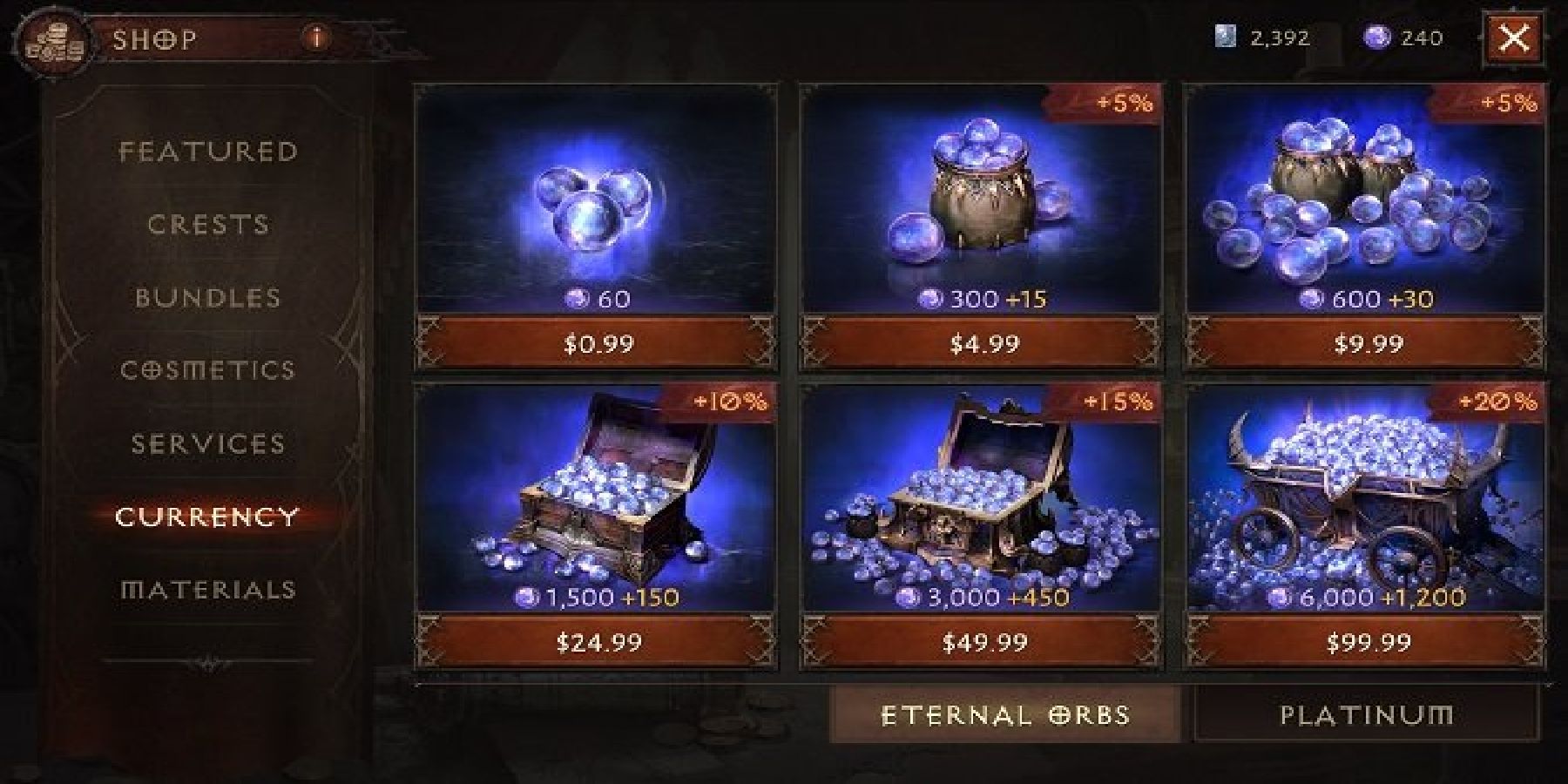The recently released Diablo Immortal has received a rather overwhelming amount of backlash from the wider gaming community. With the title historically receiving criticism for its focus on mobile platforms, negative publicity has now spiraled in a way that many could not have predicted prior to its launch.
It is the supposed pay-to-win nature of the microtransaction system of Diablo Immortal that has drawn this intense criticism, with players reportedly having to spend hundreds of thousands of real world dollars if they want to max out a player character's stats. Despite the now prolonged backlash surrounding the title, there has been a worrying level of radio silence from the game's developer, Blizzard Entertainment.
The Diablo Immortal Microtransaction Controversy Explained
To understand why the lack of official response from Blizzard is so alarming, a solid grasp of just how egregious the microtransaction system of Diablo Immortal is must first be established. Immortal is a free-to-play title designed for mobile devices and PC. Many will sensibly assume that a free game that is curated for mobile gaming is likely to have a microtransaction element, since Blizzard has to turn a profit somehow, although the extent to which Immortal pushes the system upon players has caused a tipping point within the community.
Diablo Immortal heavily pushes seasonal passes, as well as having loot boxes that contain extremely important legendary gems, which are integral to maximizing the potential of a player character's stats. Streamers have indicated that it can cost over $500,000 to fully level up a Diablo Immortal character, with these kinds of ludicrous figures spearheading the controversy that the game is currently embroiled in.
The massively low odds of pulling the best items within the game contribute towards these massive figures, with a fan-made Diablo Immortal loot box simulator being created to allow players to see just how low the odds of getting 5-star gems truly are. Many streamers are already leaving the game over the near necessity of microtransactions to progress without a high level of monotony, and so the lack of any official acknowledgement from Blizzard is quite telling.
Why Blizzard's Silence is Worrying
Considering how high-profile the controversy surrounding Diablo Immortal is, many would expect that the developers behind the game would have already made changes to the microtransaction system, or at the very least made a statement in relation to the backlash. For example, when Battlefront 2 was going through its infamous microtransaction crisis, EA temporarily removed microtransactions from the game to reevaluate their pricing. Despite this comparable historical precedent, no such effort has been made from Blizzard at the time of writing.
Sadly, many point to the remaining commercial success of Diablo Immortal as the potential reason behind Blizzard's lack of immediate action. Diablo Immortal is reportedly making $1 million a day in its current state, indicating that a select portion of the game's player-base is still participating in the microtransaction system to quite a large extent, despite the vocal criticism. That kind of income incentivizes Blizzard to keep the system in place, meaning its silence could indicate the game isn't changing anytime soon.
Having said this, recent job listings indicate that Blizzard is actively hiring a crisis management expert for a global communications role at the company, which could very well be in relation to a potential response to the Immortal controversy. Regardless, if Immortal continues to make the same impressive amounts of revenue, a response from Blizzard runs the risk of falling to the wayside, with the microtransaction system clearly not being at a point where it is completely refused by the community.
Diablo Immortal is available now on Mobile and PC.



